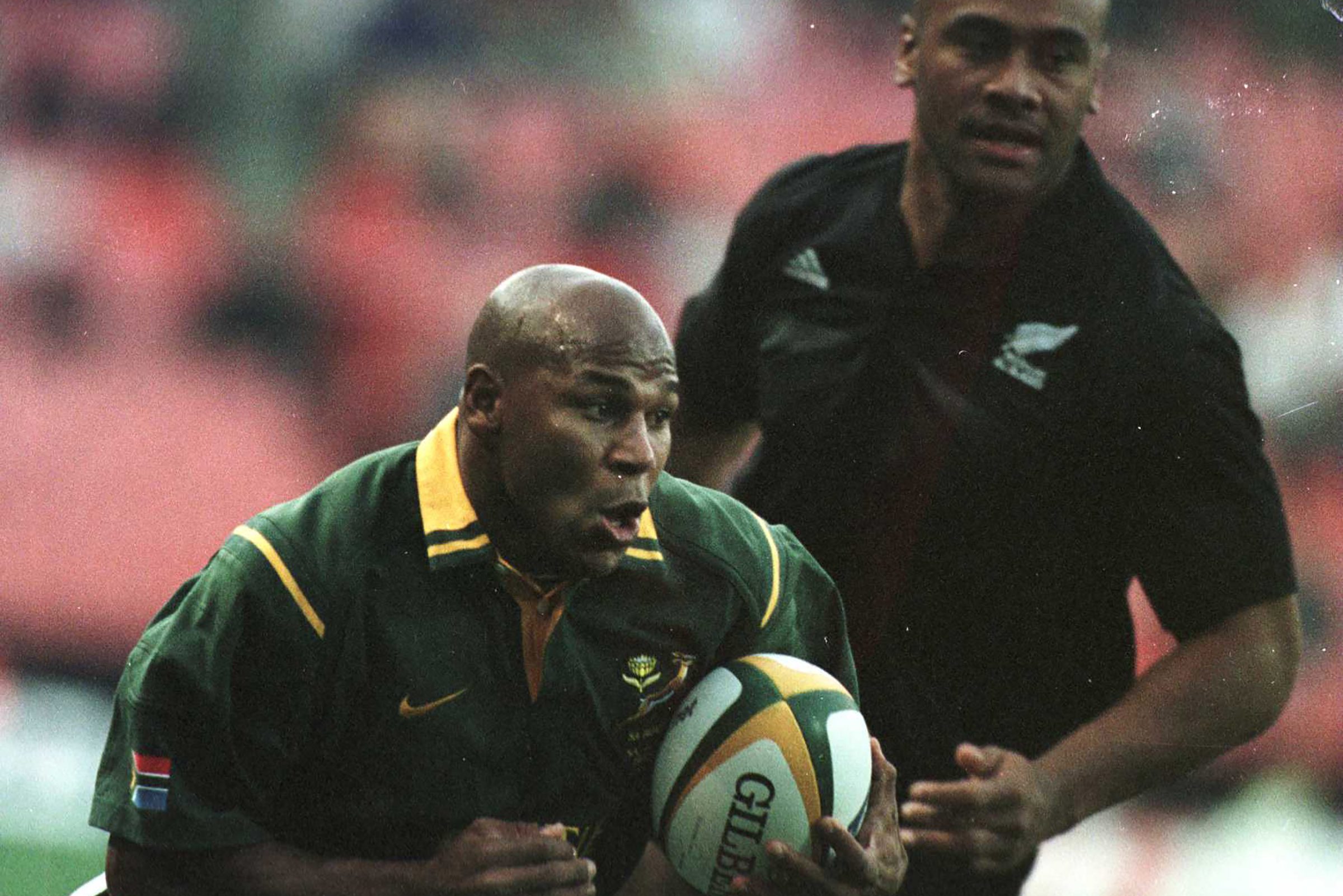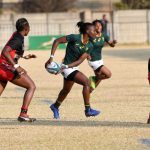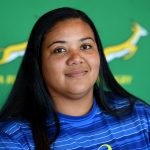The Springbok who made the team truly South African
The 1995 Rugby World Cup-winning Springbok, Chester Williams who died on Friday, inspired millions of black South Africans by showing that they belonged in a team that was a symbol for apartheid.
Author:
11 September 2019

It wasn’t by chance that former president Nelson Mandela lingered a little longer when he shook the hand of No. 11 ahead of the 1995 Rugby World Cup final between South Africa and New Zealand at Ellis Park in Johannesburg.
No, not the late Jonah Lomu who had burst on to the world’s scene. It was the other left winger on the field, the one who had captured the hearts of the fledgling rainbow nation, who had captivated Mandela. Madiba clasped the hand of Chester Williams and the trademark smile was there for all to see.
Williams was the very symbol of the rainbow nation that Mandela wanted to make his Rembrandt. Williams, with his fierce determination and nose for the try line, was one of the bright colours that Mandela needed to complete the picture. Williams, the sole symbol of colour in a team destined for glory and immortality, wearing the colours that used to symbolise apartheid, was a magnet for millions of people who had never thought of rugby as something that was theirs.
Related article:
In the township of Imbali, Pietermaritzburg, two things were mimicked more than most over the course of that World Cup. The Haka was one, with its strangely familiar cries intriguing a nation well versed in warriors performing a ritual dance before going to battle. The other was Williams sliding in four tries against Samoa in the quarterfinals.
There he was, almost on replay, dotting down and taking his side out of sight. Not just his side, our side.
He wasn’t alone, of course, but he represented far more than just a man on the wing playing rugby.
The fact that he had been picked for the initial World Cup squad, lost his place because of injury and was then brought back in for the suspended Pieter Hendriks was a lesson in never giving up.
The chosen one
It is not a stretch to say that Williams was the first postapartheid sports star outside of football to ripple through townships as a beacon of hope and inspiration. Cricketer Makhaya Ntini came after him, as did marathon runner Josiah Thugwane and countless others. But Williams was first. His face was the most recognisable in the country for a while, bested only by Madiba.
He represented fresh opportunity and illustrated that you could still win with a smile on your face. In a position defined by numbers, he was the first in the consciousness of a young new country that was visible to all. Chester the chosen one.
Related article:
As black youngsters, we only knew rugby to be this uncompromising clash of wills. No inch given, no flinch forgiven. Williams showed a more human side, finishing with aplomb and a smile dancing on his lips.
In later years, scrumhalf Werner Swanepoel was dubbed “Smiley” in the Bok team, because that’s what he always seemed to do. But Chester was first, grinning his way to glory. He did the same at Newlands, with the famous blue and white hoops of Western Province synonymous with a smile – and a diving try in the corner.
“Chessie, Chessie!” the plaudits would come.
He was so at home at Newlands that some knew the famous stadium as “Chesterfield”. Winning the World Cup changes lives and it can also change people’s behaviour. Williams, however, was humility personified, being more comfortable talking about anything other than his landmark accomplishments.
A beacon of hope
Forget that he had changed the world of many a young, black South African, he was keener on changing the subject and having a conversation rather than an interview. I was too young to cover Williams’ playing career, but golf days and the SuperSport Shootout celebrity golf event in particular provided ample opportunity to engage with the man.
Like every other amateur golfer, there was always a nagging concern about the state of his game – especially with cameras around to capture every moment. But along with that caution, there was always the competitive fire to play better than the legends from other sporting codes.
Williams was a legend. Sorry, Chester Williams is a legend. In every sense of the word. He and his generation might have just missed out on the extravagant riches that the game now provides, but he accumulated unreal experiences over the years.
Townships chasing the team bus, chanting his name. An audience with Madiba, and the love and admiration of an entire nation. Even in the fledgling he was never seen as a token gesture. Williams was a beacon, and one that shone brighter than most.
Related article:
It is all the more jarring that he departed so soon after his fellow Bok wing, James Small. They were polar opposites in almost every sense. But in the most pivotal sense, they were brothers who shared a period of history that can never be taken away.
They flew higher than even they could have foreseen, redefining what South Africa meant to millions in one unforgettable month. That Small waited for Williams in the departures lounge is poetic, given wide men’s propensity for partnerships.
Williams had just launched his beer brand in the weeks leading up to his sudden death. Popular as he was, his amber nectar offering looked likely to be an even bigger hit. For those who can, it is only right to get behind the legacy he leaves behind and toast one of South African sport’s most popular sons.
Cheers, Chessie! And thanks for everything. Jou lekker, lekker ding.



